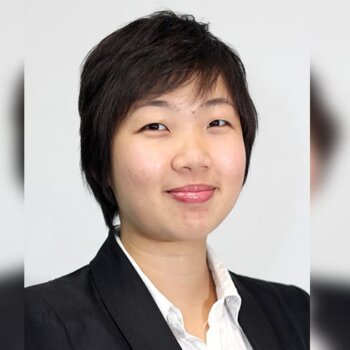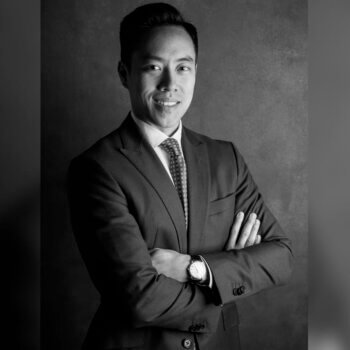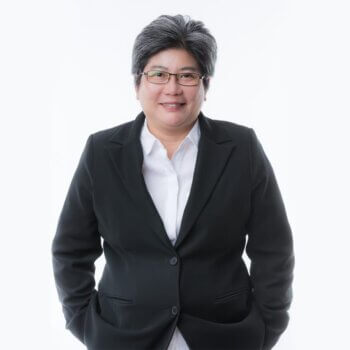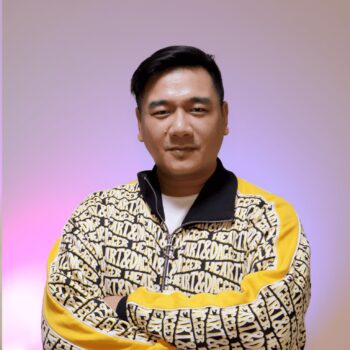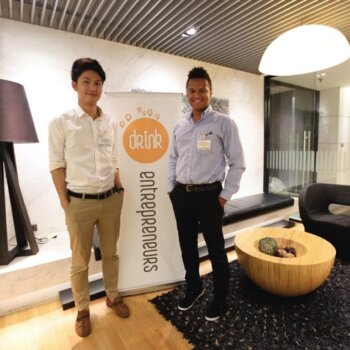(Women on Top in Tech is a series about Women Founders, CEOs, and Leaders in technology. It aims to amplify and bring to the fore diversity in leadership in technology.)
Sung Un Chang graduated from Art Institute of Chicago and SBC Young Entrepreneurship Academy. She has won many awards such as the Red Dot Design Awards 2009, IF Design Award 2010 & 2018, M+D+F Design Awards, CES Innovation Award 2017 & 2019, the Ministry of Industry and Commerce Award 2016 & 2018, and more. At YOLK, she started the Solar Cow project, a humanitarian solar charging system for eradicating child labor and providing educational opportunities in developing countries, and launched Solar Paper, the world’s thinnest and lightest solar charger.
YOLK’s mission is to make unlimited, pollution free, solar energy available in daily life. They develop innovative products combining technology and creative design, and also provide solutions for social and energy challenges.
What makes you do what you do?
I like solving problems from new perspectives. I am also really passionate about how design is such a powerful tool behind using technology in new and innovative ways. In terms of why I started my business, I believe it is the most effective way to do what I want to do. It was hard to find a company that really fit my vision, so I made my own.
How did you rise in the industry you are in?
I think the reason YOLK has gotten so many highlights for our work is because our approach is different. Tech fields have a lot of focus on technology itself, but for YOLK, rather than improving the tech a little more, we approach it from a design perspective, solving problems in a totally different way. Technology definitely needs more designers. For example, solar chargers are typically bulky and heavy. For Solar Paper, instead of slightly increasing its efficiency, it was more important for us to make a desirable product for users. The same can be said about our Solar Cow project. There are countless solar panels in developing countries. While YOLK’s approach is also effective in distributing energy, its method of distribution is uniquely decentralized. Its energy distribution is also a mechanism we use to combat child labour, and so the Solar Cow has a cross-sector impact. These kinds of new perspectives have helped us to rise in the industry.
Why did you take on this role/start this startup especially since this is perhaps a stretch or challenge for you (or viewed as one since you are not the usual leadership demographics)?
I like challenges. I like independence. I like seeing what impact I can make on the world, and startups are one way you can very clearly see your impact. In large organizations, you are a really small part of the entire equation, and it is hard to see what impact you make. As an impact-driven person, starting my own company was a clear option for me. I want to see what I can do!
Do you have a mentor that you look up to in your industries or did you look for one or how did that work?
I think Elon Musk is cool. What he is doing inspires people a lot. When you run a company, you are going to get work that is tedious but inevitable. It is hard to dream when you are doing that work. But he is still inspiring people and making them dream, and that inspires me too— I would like to inspire people in that way, as well. I think we need people in modern life to dream as big as he does. When we question things, asking, “Is that possible?” seeing the near-impossible be done opens a new world of possibilities for our own dreams. In the same vein, the problems YOLK aims to solve are global problems that huge organizations with a lot of money and people have been trying to solve for decades, and they have not been solved. Compared to these massive problems, YOLK seems very very small but we would like to show that very small companies can come up with ideas that can change the world, and make change actually happen. We want to make people dream.
Now as a leader how do you spot, develop, keep, grow and support your talent?
The people I am looking for are self-driven people that can do their work by themselves. I cannot order every single action or see every detail that my team handles, so I need people that can handle their own projects. We also need creative people— our project is creative, so we need creative people to contribute to it in effective ways, and our customers are expecting us to solve problems creatively. It is part of why they support us.
I try to give my team many opportunities. Even though we are small, YOLK gets a lot of unique opportunities, so I share them with my team so they can also learn from these unique experiences. I believe they stay because we’re all contributing to new and creative initiatives. Speaking of creative projects, our projects have played a big part in finding great team members, because people are attracted to great projects. It was difficult to recruit a team during the company’s inception, but now we’re in a good place. Finally, because YOLK is a startup, everyone has a key role to play, but I try to give each person tasks or projects they enjoy doing a lot. Everyone has to do work they don’t necessarily always like, but I try to cultivate a balance so that they can enjoy their work.
Do you consciously or unconsciously support diversity and why?
I look for diverse fields of expertise because it is completely necessary. We have entirely different skillsets and roles that we have to cover because we are not only a design agency— we handle manufacturing, design, marketing, the entire supply chain. So I hire people based on their suitability for the role.
What is your take on what it takes to be a great leader in your industry and as a general rule of thumb?
In the industry, I think we are on the right path— having a different perspective is key. In general, I am not certain! I am not there yet, but I do know one thing— I have to have more gratitude towards my team and my partners and show it more.
Advice for others? (Please share here what you are up to next or where you want to focus people’s attention to)
I want people to just take the leap and try. When I first started the company, I thought I had a brilliant idea, and that I would be super rich and buy a foreign car even though I cannot drive. But in the end, it was not important. Ideas can be developed and changed— the initial idea was not important in the end. I think the more important thing is the people you meet while you pursue your dream and your will. It is always an ongoing process, and it is a long journey in which you will struggle.
So try. Don’t just plan for 5 years. The world is changing, and rather than being scared and still, just start. Even if it’s a small idea, it will grow and you will develop it. You can fail. Most of the time, you will. It happened to me, too. But in the end, I said, “Okay, let’s just do it.” Because failure is not the end! I will live longer than this. Today’s failure is not the end of the world. Take the leap. Consider it as a journey to learn about yourself.
YOLK is working with KOICA’s CTS program! On August 15, the Independence Day of Korea, we’ll be installing a Solar Cow system in Tanzania— it’ll be an Independence Day for child labour in that community. We are also going to be launching another crowdfunding campaign soon! Anyone that is interested can sign up for our newsletter to stay tuned at yolkstation.com.
If you’d like to get in touch with Sung Un Chang, please feel free to reach out to her at [email protected]





